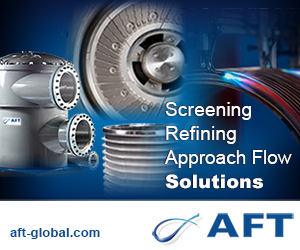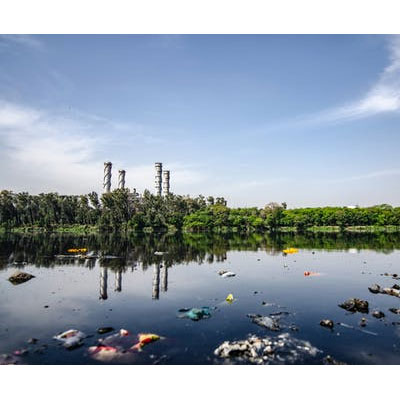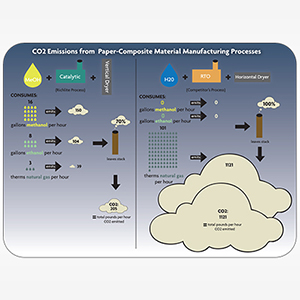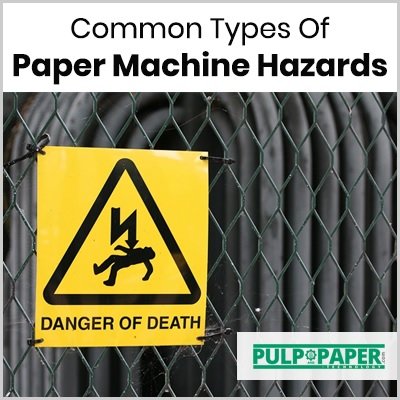The Best Maintenance Tips for Industrial Air Filtration Systems
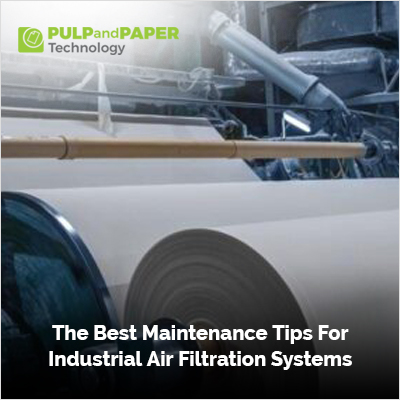
Industrial air filtration systems play a critical role in maintaining air quality within manufacturing facilities, warehouses, and other industrial settings. To ensure the optimal functioning of these systems and promote a healthy work environment, it is crucial to implement a robust maintenance routine. This guide outlines key maintenance tips, offering a comprehensive approach to keep industrial air filtration systems operating at peak efficiency.
Here are some essential maintenance tips for industrial air filtration systems:
1. Regular Inspections:
Routine visual inspections are the cornerstone of effective industrial air filtration system maintenance. During these inspections, maintenance personnel should carefully examine the entire filtration system, including components such as filters, seals, gaskets, and connections. The goal is to identify any signs of wear, damage, or corrosion that may compromise the system's performance. Inspecting seals and gaskets is particularly important as they contribute to preventing air leakage, ensuring that the filtration system functions as intended. Early detection of issues through regular inspections enables timely intervention and helps prevent more significant problems down the line.
| Read More: Optimizing Air Handling Systems in the Pulp and Paper Industry |
2. Change Filters on Schedule:
A key aspect of maintaining industrial air filtration systems is adhering to the manufacturer's recommended filter replacement schedule. Filters are integral to trapping contaminants and particulate matter, preventing them from circulating in the industrial environment. Over time, filters can become clogged, reducing airflow and diminishing the system's efficiency. Regularly changing filters not only ensures the continued effectiveness of the filtration process but also contributes to energy efficiency. Clogged filters require the system to work harder, leading to increased energy consumption and operational costs. By following a predetermined filter replacement schedule, industrial facilities can optimize their filtration system's performance while minimizing energy expenditures.
3. Monitor Differential Pressure:
Installing and regularly monitoring differential pressure gauges across filters is a proactive approach to system maintenance. Differential pressure provides insights into the condition of the filters, with an increase indicating potential clogging. Exceeding recommended pressure differentials can lead to decreased airflow, putting additional strain on the system. Monitoring differential pressure allows maintenance personnel to identify filter issues promptly and replace them before performance is compromised. This preventive measure not only extends the life of the filtration system but also aids in energy conservation by ensuring that the system operates with minimal resistance.
4. Proper Training for Maintenance Personnel:
Effective maintenance requires well-trained personnel who can conduct thorough inspections, identify issues, and perform necessary replacements. Providing proper training ensures that maintenance teams are equipped with the knowledge and skills to handle various aspects of industrial air filtration system maintenance. Training should cover inspection protocols, filter replacement procedures, and safety precautions. Well-trained personnel contribute to the early detection of issues, reducing downtime and enhancing the overall reliability of the filtration system.
5. Inspect and Clean Ductwork:
Ductwork plays a crucial role in transporting air through the filtration system. Regular inspections of ducts help identify potential obstructions, leaks, or damages that could impede airflow. Cleaning ducts periodically is essential to prevent the accumulation of dust and contaminants, ensuring that air can flow freely through the system. Neglecting ductwork maintenance can lead to decreased system efficiency, increased energy consumption, and compromised air quality within the industrial environment.
6. Inspect Air Intakes:
Air intakes serve as the entry point for air into the filtration system. Regular inspections and cleaning of air intake vents are essential to prevent the ingress of large particles or debris. Maintaining clean air intakes ensures that the filtration system processes air efficiently, capturing contaminants effectively. This step contributes to the overall quality of the air entering the system, promoting a healthier and safer working environment for industrial facility occupants.
7. Check Seals and Gaskets:
Seals and gaskets are critical components of an industrial air filtration system, contributing to the system's overall integrity. Regularly checking and replacing damaged seals or gaskets is essential to prevent air leakage. Proper seals ensure that the system operates at its designed efficiency, minimizing the risk of contaminants escaping into the industrial environment. Addressing seal and gasket issues promptly during routine maintenance helps maintain the effectiveness of the filtration system in capturing and containing pollutants.
8. Monitor Motor and Fan Performance:
The motor and fan components of an industrial air filtration system are integral to its operation. Regular monitoring ensures that these components function correctly. Lubricating bearings as needed and replacing worn-out parts prevent breakdowns and disruptions in system performance. Addressing motor and fan issues during routine maintenance contributes to the longevity of these components, reducing the risk of unexpected failures that could lead to downtime and increased maintenance costs.
9. Invest in Quality Filters:
The choice of filters significantly influences the effectiveness of an industrial air filtration system. Investing in high-quality filters tailored to the specific contaminants present in the industrial environment is crucial. Consultation with the filtration system manufacturer can help determine the most suitable filter type for the facility's needs. Quality filters not only enhance the system's performance but also contribute to long-term cost savings by providing efficient and reliable contaminant capture.
10. Implement a Preventive Maintenance Program:
A proactive approach to industrial air filtration system maintenance involves implementing a comprehensive preventive maintenance program. This program should include a well-defined schedule for routine inspections, cleaning activities, and component replacements. By systematically addressing maintenance tasks, facilities can identify and rectify potential issues before they escalate. Preventive maintenance not only extends the lifespan of the filtration system but also minimizes the risk of unexpected breakdowns, reducing downtime and associated production losses. Establishing a structured preventive maintenance program is an investment in the long-term reliability and efficiency of the industrial air filtration system.
11. Document Maintenance Activities:
Maintaining detailed records of all maintenance activities is a crucial aspect of effective system management. Documentation should include information on filter replacements, inspections, repairs, and any other relevant maintenance tasks. These records serve as a valuable reference for tracking the system's performance over time. In the event of issues or concerns, comprehensive documentation aids in troubleshooting, allowing maintenance teams to identify patterns, make informed decisions, and optimize the overall maintenance strategy.
Conclusion:
In conclusion, effective maintenance of industrial air filtration systems is vital for sustaining a healthy and productive industrial environment. By incorporating regular inspections, adhering to filter replacement schedules, monitoring differential pressure, and implementing a proactive maintenance program, facilities can ensure that their filtration systems operate at peak efficiency. Each maintenance tip plays a crucial role in preventing issues, reducing energy consumption, and extending the overall lifespan of the filtration system. Prioritizing these maintenance practices contributes to a safer, cleaner, and more sustainable industrial workplace.


